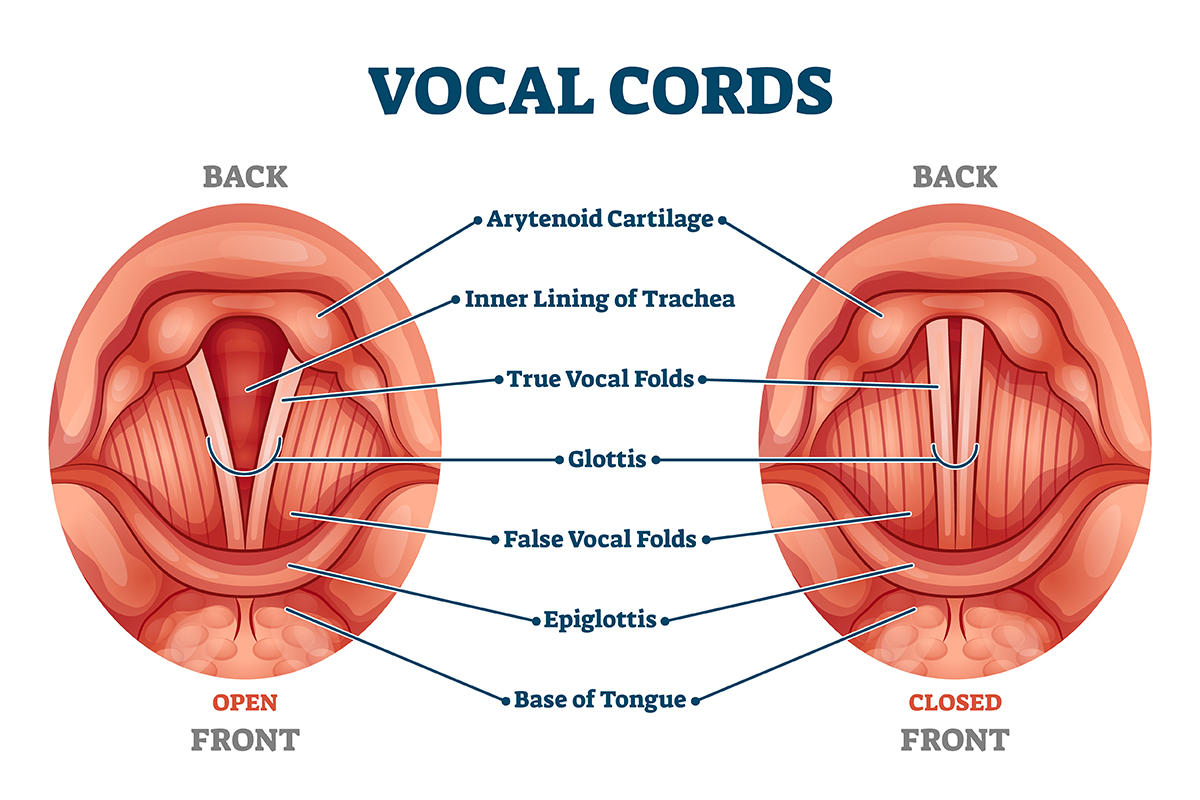Parkinson’s Symptoms: “OPEN WIDE” – A Trip Down Our Throat
Our throat muscles, through which we speak, sing and scream, give us our signature sound. In many situations, people affected by Parkinson’s disease (PD) have diminished voice control. According to Wikipedia, Parkinson’s disease can cause changes in speech. The voice may get softer, breathy or hoarse, causing others difficulty hearing what we say. Speech may be slurred. Speech changes can interfere with communication, which can be isolating and harmful.
Other causes of voice disorders include infections, stomach acids that move upward in the throat, growths due to a virus, cancer and diseases that paralyze the vocal cords. Here is a brief understanding of what, how and ways to care for your precious voice.
What Are Your Vocal Cords?
Your voice box sits between the base of your tongue and the top of your windpipe, which is where your Adam’s apple likes to hang out. (The Adam’s apple is more pronounced in men than in women.) The vocal cords are two bands of smooth muscle membrane tissue, each covered in a mucous membrane, that stretch across the voice box like the strings on a guitar.
How They Work
When you’re quiet: listening, observing, perhaps meditating – your vocal cords sit apart, creating a tunnel through which you breathe in. But the moment you begin speaking, they clap together as the diaphragm pushes air up from the lungs. This air causes a buzz sound or vibration and sends sound waves through your throat, nose and mouth, which amplify them. As these “hums” pass through, they are transformed into song or sentences.
Your Sound
Vocal cords vary in thickness and length, which is why each person has his or her unique tune. Think of the singer Barry White’s voice. Deep and strong. Those who have booming voices, such as Barbra Streisand have larger resonating cavities (throat, nose and mouth).
Take Care of Your Cords
Yelling, or screaming can cause inflammation and lesions on your vocal cords. Even a long-lasting cough can do damage. If you are hoarse, rest your voice. Speak softly and try to avoid throat clearing, even if your throat is congested. Drink lots of water to thin excess mucus and lubricate. Menthol and eucalyptus can be irritating.
For those with Parkinson’s disease, if you notice your voice is diminished, see a speech-language pathologist (SLPs) specializing in voice therapy. They can assist with diagnosis, assessment, planning and treatment of voice disorders including difficulty with swallowing. Some exercises include moving your tongue up and down, moving it from corner to corner, placing your tongue at the tip of your mouth or smiling and saying “EEE” loudly. Repeat 10 times, at least twice a day.
Reprinted with permission from Lori Michiel.
Lori Michiel, NASM, has been assisting seniors in their homes since 2006 with customized exercise programs including those designed to address Parkinson’s, metabolic disorders, arthritis and diabetes. These adaptive programs are specifically designed to improve balance, circulation, flexibility, mobility and promote independence. Lori Michiel Fitness has over 40 certified trainers who are matched with clients in Los Angeles, Ventura and Orange Counties. Connect with Lori at www.LoriMichielFitness.com.


